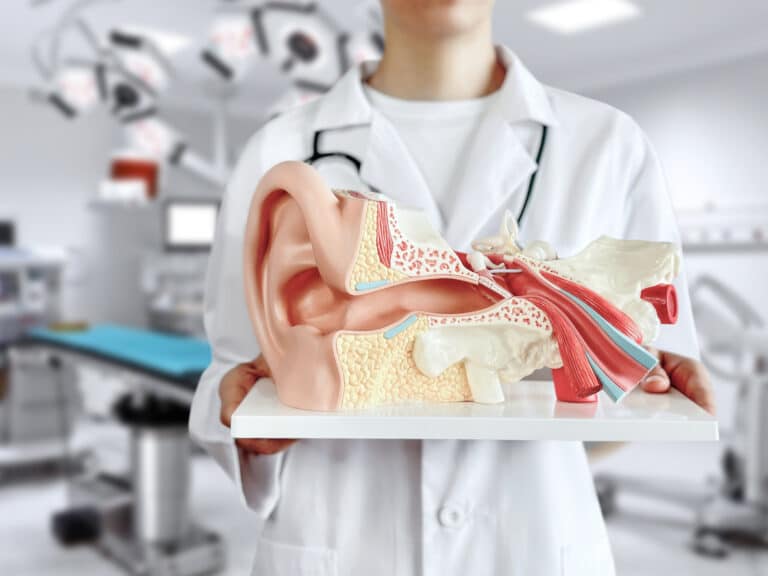When you look for a new medication or your provider prescribes one, you review the usage instructions and potential side effects. For example, if you take an antacid for heartburn, possible side effects can include gas or a headache.
Paying attention to these side effects and weighing your options is crucial. Certain medications even list hearing loss or tinnitus as possible side effects. These are called ototoxic medications.
How Do Ototoxic Medications Damage Hearing?
Your inner ear houses the cochlea, a snail-shaped, fluid-filled organ lined with thousands of tiny hair cells. These hair cells generate electrical currents and send them down the auditory nerve to the brain, which understands them as sound.
Ototoxic medications damage these tiny hair cells, preventing them from effectively transmitting sound and resulting in hearing loss and tinnitus.
Is Ototoxic Damage Permanent?
Hearing issues caused by ototoxic medications aren’t always permanent. Damage depends on the length of use and your susceptibility to the medication’s effects. Your chances of permanent damage may be higher if you combine the drugs with other causes of hearing loss, such as loud noise exposure.
What Are Some Ototoxic Medications?
There are more than 200 documented ototoxic medications and chemicals. Common ototoxic medications include those used to treat serious infections, cancer and heart disease. A couple of specific drugs known to cause permanent damage include:
- Aminoglycoside antibiotics
- Chemotherapy drugs
A few specific drugs known to cause temporary damage include:
- Salicylate pain relievers
- Quinine (to treat malaria)
- Loop diuretics (to treat heart and kidney conditions)
Can I Prevent Ototoxic Damage?
In some cases, you can find alternatives to ototoxic medications. However, many ototoxic drugs are used to treat lifesaving conditions like cancer or heart disease, and you may not have the option to switch. Doing your research and talking to your provider about the potential side effects of your medication can help prepare you for the possibility of hearing damage.
Protecting yourself from other sources of hearing damage can help minimize the effects of ototoxic medications. Always wear earplugs or earmuffs when around loud noise, like at concerts, construction sites or action movies at River Oaks Houston.
For more information about protecting your hearing, contact Hearing Systems today to schedule an appointment with one of our specialists.

